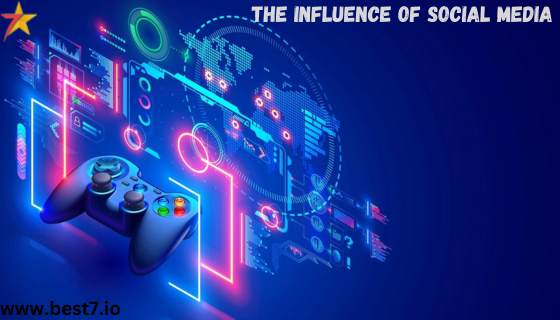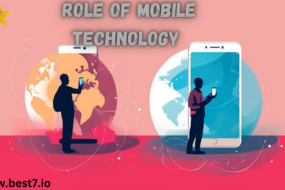
The connection between social media and gaming culture has been flourishing. Social media changed the way gamers interact with one another and has had numerous effects on the community. This connection has led to the development of social networking sites where interactions between similar members can occur, such as Twitch and YouTube. Information is shared quickly on Twitch, and the site is used by several million members every month. Currently, there are over 2.8 million constant viewers on Twitch. This number is expected to grow and reach over 4 million constant viewers in 2025.
Impact of YouTube on Gaming Growth
The evolution of YouTube was specifically beneficial to the gaming industry, as it offered new tools for streaming gaming sessions. There were 3.4 billion YouTube viewers in 2021, and this number is expected to increase to 3.6 through 4.2 billion users in 2025 through 2028. These changes in membership growth illustrate that an increasing number of people value streaming experiences.
The Role of Social Media in Gaming Culture
Social media features content creation and live streaming as crucial characteristics that have been evolving with the rest of the gaming industry. The evolution of this interaction altered the ways people experienced gaming. Involvement in the game consisted of gaming sessions alone at home or a friend’s home for a previous generation. At the same time, the current generation is in the prime of constant online interaction, highlighting the alterations in the games destined for these age groups. Content creators established a firm footing within the gaming culture as they were witnessed participating in the mentioned interaction shifts. They are the influential figures within the environment and will affect the methods used in the future for creating games.
Projected Gaming Trends Through 2026
Moreover, by 2026, 70% of gamers will regularly participate in viewing content created by gaming influencers. Additionally, social media platforms will no longer be used exclusively as places for conversation. The future landscape is expected to be transformed by the following:
- Advanced artificial intelligence will change gaming’s playing methods and experiences.
- Use of sensory feedback for more realistic virtual environments and levels of interaction.
- Player creativity in-game worlds will be developed through game fermentation.
- Levels of multiplayer interaction will be raised to ambitious goals.
- A vast network of virtual worlds will be created, allowing movement between worlds.
Discussion on Social Media’s Role in Gaming Expansion
Social media and gaming culture are closely related, and this connection will expand as social networking trends evolve. Various features and modes of interaction will undoubtedly be reflected in future interactions between social media and gaming and pave the way for future changes.
Rise in Viewer Engagement and Esports Coverage
Increased Viewer Engagement: By 2025, the average viewer engagement rate on Twitch and YouTube will reach 15% because live streamers and content creators will employ interactive features, such as polls and live chats or Q&As.
Expansion of Esports Coverage: The growth of esports will attract more significant viewerships on streaming platforms. By 2024, more than 300 million people will watch an esports final event on one of the major online platforms, such as Twitch.
Growth of User-Generated Content and Community Building
Growth of User-Generated Content: User-generated content will become increasingly important. By 2025, more than 50% of videos featuring best gaming highlights and software reviews will be created by YouTube users.
Enhanced Community Building: Social media will foster a greater sense of community, and individual gamers will dedicate more time and energy to their online communities.
Influencer Marketing and Future AR/VR Integration
Influencer Marketing: The future of gaming marketing will be influenced by gaming content creators, with over $1 billion spent by 2024 on promoting games through influencer marketing.
Future AR and VR Integration: By 2025, already 25% of gaming videos will be alternative reality content.
The Rise of Influencer Culture in Gaming
Influencer culture, which saw a tremendous rise in popularity and impact in the new media sphere, had a profound influence on gaming culture and games themselves, changing the way they are promoted and consumed. Gaming influencers have become an essential factor in shaping public opinion on games and directing the market.
Influencer Impact on Game Development and Community Engagement
By 2025, it is expected that 90% of gamers will be following at least one gaming influencer. Key aspects include:
- Authenticity and Trust: Gamers perceive influencers as authentic enthusiasts, leading to a higher likelihood of purchasing promoted games.
- Community and Interaction: Influencers foster vibrant communities, strengthening connections through live interactions.
The Future of Video Game Marketing
The future of video game marketing is strongly conceived with social media and content creation. Traditional promotional methods will diminish, with an estimated 75% of video game marketing budgets by 2025 focused on social networks and influencer marketing efforts.
Trends in Targeting, Interactivity, and Content-Driven Campaigns
- Targeting and Cross-Promotion: Big data possibilities will allow companies to gather data on gamers, enhancing targeted advertising strategies.
- Integration of Streaming Events: Gaming brands will increasingly release new games via influencer streams to generate buzz and increase engagement.
Community and Social Media Evolution
The constant dialogue between a brand, a gamer, and an influencer will strengthen social media’s role in gaming and online gambling culture. Social media’s role is only expected to grow, ushering in dynamic industry developments in the near future.












